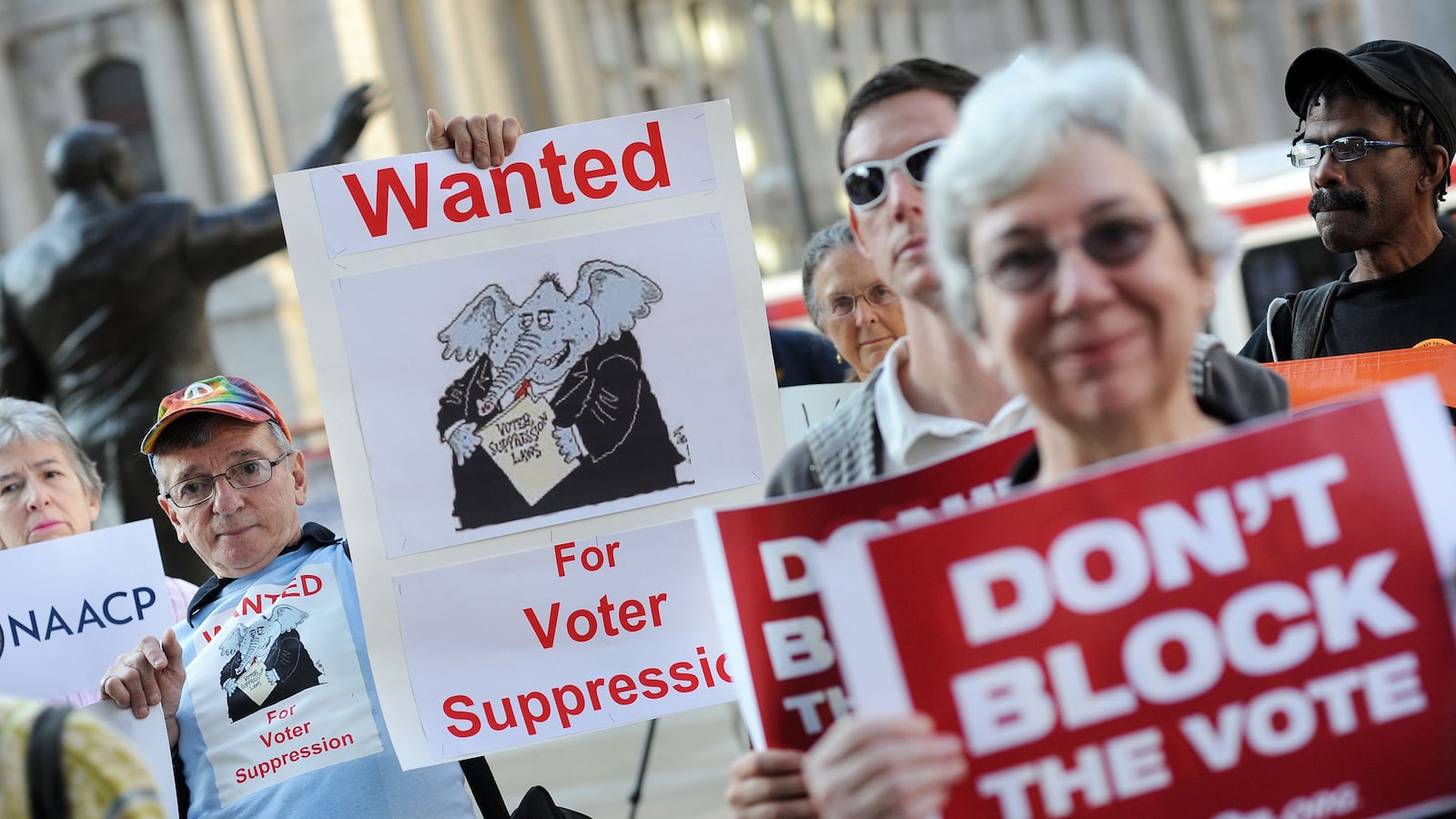
The Pennsylvania state court has struck down the state’s voter identification law, passed by Republicans during the 2012 campaign season. At the time, it was one of the strictest in the country. Not only were voters required to show an unexpired government-issued ID, but if it wasn’t issued by either the state of Pennsylvania or the federal government, then it would not be accepted, excluding—for instance—student Ids from outside of the state. And if you don’t have ID, then you could receive a free one—as long as you have a Social Security card, official birth certificate, and two proofs of residency.
For the hundreds of thousands of Pennsylvanians who lacked ID, permanent addresses, ready access to documents and the funds to obtain them, this law was a blow to their ability to participate. Indeed, according to a report released that year by the Philadelphia Inquirer, more than 758,000 Pennsylvanians—or nearly 10 percent of the state’s voters—lacked a government-issued ID, including 21 percent of the state’s nonwhites.
Had the law gone into effect—it was blocked from implementation—it would have disenfranchised hundreds of thousands of voters. Which, it seems, was the point, as admitted by then State GOP House Leader Mike Turzai:
“We are focused on making sure that we meet our obligations that we’ve talked about for years,” said Turzai in a speech to committee members Saturday. He mentioned the law among a laundry list of accomplishments made by the GOP-run legislature.
“Pro-Second Amendment? The Castle Doctrine, it’s done. First pro-life legislation — abortion facility regulations — in 22 years, done. Voter ID, which is gonna allow Governor Romney to win the state of Pennsylvania, done.”
In his opinion, Judge Bernard McGinley said that the ID requirement placed an unreasonable burden on the right to vote. Republicans are likely to appeal this ruling to the state supreme court.
Meanwhile, in Congress, lawmakers have introduced a measure to restore key parts of the Voting Rights Act, which—if passed—could prove difficult for voter identification laws in states like Georgia, Louisiana, Mississippi and Texas. But, given the attitude of House Republicans toward anything constructive, I'm not holding my breath.






